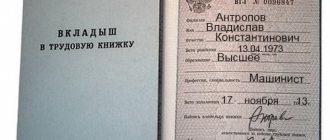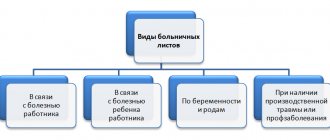What the law says
The obligation to pay property tax is recognized by everyone.
It is legally justified; all issues related to the problem are regulated in detail in Chapter 32 of the Tax Code of the Russian Federation. To figure out whether a child should pay, you should refer to the basic legislative act - the Civil Code of the Russian Federation. From the norms of Art. 26 obviously follows that from the age of 14 to 18 years, a child must pay tax, since he has sufficient legal capacity to do so.
Dear readers!
Our articles talk about typical ways to resolve legal issues, but each case is unique. If you want to find out how to solve your specific problem, please contact the online consultant form on the right →
It's fast and free! Or call us by phone (24/7):
If you want to find out how to solve your particular problem, call us by phone. It's fast and free!
https://www.youtube.com/watch?v=ytcreatorsru
As for the younger age, up to 14, transactions can be made on behalf of minors, in accordance with paragraph 1 of Art. 28 only:
- parents;
- adoptive parents;
- guardians.
In paragraph 3 of Art. 28 establishes the property liability of these persons for transactions involving minors. It follows from this that young children are also required to pay property taxes.
If we assume the opposite, removing minor children from taxation, the situation will be absurd. All of the property of individuals, or a considerable part of it, can at least be registered in the name of minors. The state treasury will lose one of its sources of replenishment, which is unlikely to please many citizens whose well-being depends on the amounts paid by the state.
The arguments given by the tax service are usually based on Law No. 2003-1, adopted in 1991. This regulatory act established the procedure according to which the property of individuals is subject to taxation. The arguments given in the letter of the Ministry of Finance No. 3-05-06-01/62 of 2011, dedicated to the consideration of the problem of interest, are largely based on the norms of this law.
However, Law No. 2003-1 is no longer valid, therefore the regulation of the taxation procedure should follow from the norms of Chapter 32 of the Tax Code of the Russian Federation.
How to calculate and pay tax?
The child pays all property taxes on the basis of calculations made by the tax authorities and on the basis of the corresponding notification (or using electronic services).
When receiving any income that is subject to personal income tax, you must independently calculate the tax and submit a tax return in Form 3-NDFL.
In this case, the parents fill out a tax return on behalf of a child under 16 years of age, and a child between 16 and 18 years of age can file a tax return independently.
Children must pay taxes (position of tax authorities)
On the one hand, according to Article 19 of the Tax Code of the Russian Federation (TC), taxpayers and payers of fees are organizations and individuals who are obliged to pay taxes and (or) fees, respectively. Tax authorities miraculously connect this obligation with Article 27 of the Tax Code, from which (in their opinion) it follows that the legal representatives of minors are their parents, and therefore they must pay taxes for their children and even refer to it in various explanations and letters (for example, in Letter of the Ministry of Finance of the Russian Federation dated August 11, 2011 No. 03-05-06-01/62).
Tax authorities usually do not object to parents paying taxes for their children, since for them paying the amount to the budget is preferable. I believe that in this case, the parent who paid the tax can subsequently apply to the Federal Tax Service with a request for a credit or refund of the overpaid tax in accordance with Article 78 of the Tax Code, since The tax authority will have no grounds for refusal, but such a requirement may cause stupor among tax officials.
Benefits for minor taxpayers
Completion of small household transactions by minors, clause 2 of Art. 28 of the Civil Code of the Russian Federation provides for from the age of six. However, not a single Russian regulatory act directly states:
- from what year of life the tax burden is accrued on a citizen;
- At what age do you pay property taxes?
It is clear that upon reaching the age of eighteen, all legally capable persons make transactions independently. You can become a real estate owner at any age due to:
- donations;
- inheritance;
- privatization.
Consequently, there is no need to establish a minimum age limit for collecting taxes on the property of individuals.
Existing federal tax benefits for categories of individuals and objects of taxation are given in Art. 407 NK. If we single out minors, then they have the right to a 100% benefit as:
- disabled children;
- those who have lost the breadwinner of a military family;
- receiving social support;
- professionally engaged in creative activities - in a specially equipped room/building;
- owners of a property with a total area of no more than 50 square meters. m., located on a land plot provided for its intended purpose.
We invite you to familiarize yourself with: Subsidiary liability of the founder and director of an LLC for debts in 2021
The benefit is provided for only one object from those types of real estate that are listed in clause 4 of Art. 407.
At the local level, incentives can also be provided up to half the amount of the assigned tax.
The procedure according to which the property tax benefit is used is generally established in clause 6 of Art. 407 NK. If there is a benefit provided by federal law or a decision of local authorities, then the legal representative of the child should contact the local Federal Tax Service. The following application will be required with the application:
- your own ID;
- birth certificate of the beneficiary;
- documentation confirming the right to the benefit.
The legal representative of the child is required to choose the object for which the provided benefit will be taken into account.
Should a pensioner pay transport tax? Legal advice
Current legislation regulates the assessment and rates of transport taxes at the regional level. The government may also introduce other laws regarding vehicle tax. These include a 100% tax discount on military equipment, as well as specially equipped vehicles for transporting disabled people. This rule applies not only to pensioners.
This benefit is also offered to parents of minor disabled children, provided that the engine power does not exceed 100 hp. and the vehicle is used directly to transport a disabled child. This benefit is also provided for cars with power up to 100 hp. and purchased for a disabled person using social funds.
At the federal level there are no special benefits for pensioners. Tax support is provided at the regional level. A pensioner can receive a mandatory benefit if he:
a) participant in hostilities;
b) WWII veteran;
c) disabled person of groups 1 and 2.
Federal benefits also apply to military vehicles.
There is a slightly different benefit. The transport tax for people of retirement age is not abolished in some cities. Instead, the population is provided with a tax discount of varying amounts.
How much exactly? It all depends on the rules of the locality. In some cases you can count on a 50% discount, in others - 70-80%. Sometimes the transport tax discount is 90%.
A Russian pensioner must pay transport tax in accordance with the rules established in the city. But, as has already been emphasized, often older people are simply exempted from such payments. This is normal practice. It does not contradict the Tax Code of the Russian Federation.
But what if a citizen actually has certain benefits in relation to the payment being studied? Usually in such a case (with complete release), the established form of payment simply does not arrive to the owner of the car. But in practice, sometimes things are different.
How exactly? Do pensioners need to pay transport tax? If it turns out that the answer to this question is negative, you must inform the tax authorities at the place of registration of the elderly person.
Now it is clear that a pensioner usually does not pay transport tax. But how to properly claim your rights? There is a small algorithm of actions, following which, a citizen will be able to legally get rid of car taxes.
To be exempt from the payment being studied (if provided for by regional rules), the following is required:
- Collect a certain package of documents. We will talk about it a little later.
- Contact the tax authorities at the place of registration of a citizen of retirement age with the collected papers and an application in the established form. You can remember the finished form at home.
- Wait for the benefit to be approved. More precisely, a response from the tax authorities that the service has been informed about the exercise of rights to a discount or complete exemption from car tax.
There is nothing difficult or special about the process. If a pensioner first paid for a car and then found out that he has benefits, he can issue a refund. This procedure is also carried out at the tax office.
Transport tax is a government fee collected from each owner of a registered vehicle. Its size depends on a number of factors, ranging from the region of residence to the power of the car engine. The main purpose of introducing a transport tax is to accumulate funds for further use for road repair and construction. It is worth saying that analogues of transport tax exist in all countries of the world. Vehicle tax is mandatory. Contributions to the treasury are made once a year.
The owner of the car is obliged to pay the tax before December 1 of the year following the reporting year. That is, car owners will receive tax receipts for 2021 in 2021.
Transport tax is subject to:
- Motor scooters.
- Motorcycles.
- Cars.
- Water vehicles.
- Trucks.
- Self-propelled vehicles.
As mentioned above, the calculation of the amount of transport tax depends on a number of individual factors. One of them is a rate set at the regional level. The regions also provide benefits for certain categories of citizens.
Arguments for why a child should not pay taxes
On the other side:
- The provision of Article 8 of the Family Code of the Russian Federation that parents are obliged to support their minor children has nothing to do with taxes, because Child support in the sense of family law does not mean the obligation to pay taxes for him.
- Article 8 of the Tax Code defines the concept of tax, which is considered to be “a mandatory, individually gratuitous payment levied on ... individuals in the form of alienation of ... funds belonging to them by right of ownership.” Consequently, the child is obliged to pay tax “out of his own wallet,” which a young child simply does not have.
- According to Article 45 of the Tax Code, the taxpayer himself is obliged to pay the tax (i.e., the fulfillment of a tax obligation for another was expressly prohibited before the entry into force of Law No. 401-FZ of November 30, 2016), that is, a child, but he cannot do this due to his age. According to Article 249 of the Civil Code of the Russian Federation, each of the co-owners is obliged to pay tax - and at the same time, according to the norms of the Tax Code, one cannot pay for everyone.
- It is impossible to bring a minor child to tax liability (i.e., fine), since, according to paragraph 2 of Article 107 of the Tax Code, a person who has reached the age of 16 can be brought to tax liability. But even the issue of tax liability from the age of 16 is controversial. Thus, the Constitutional Court of the Russian Federation, in its Resolution No. 5-P of March 13, 2008, noted that the ability of a citizen, through his actions, to acquire and exercise civil rights, to create civil responsibilities for himself and to fulfill them (civil capacity) arises in full with the onset of adulthood, those. upon reaching the age of 18 (clause 1 of Article 21 of the Civil Code of the Russian Federation), and the Family Code of the Russian Federation establishes that a child is recognized as a person who has not reached the age of 18 years (the age of majority) (clause 1 of Article 54). Minor children, bearing the burden of paying taxes as co-owners, cannot be considered as completely independent subjects of tax legal relations arising when applying the specified provisions of the Tax Code of the Russian Federation, since by virtue of the law they cannot independently perform legally significant actions in relation to real estate and, in connection with this, fully be independent payers of personal income tax.
- It seems possible to demand a fine from the parents, they are already over 16 years old - the child’s parents are the legal representative of their child (that is, the taxpayer is an individual) and the tax authorities even scare with this in their letters (for example, Letter of the Federal Tax Service of Russia dated April 23, 2009 No. 3-5-04/ [email protected] ), but the Tax Code of the Russian Federation does not provide for liability for the action or inaction of legal representatives of individuals, which is confirmed by the Supreme Arbitration Court, which in paragraph 3 of the Resolution of the Plenum of the Supreme Arbitration Court of the Russian Federation dated July 30, 2013 No. 57 “On certain issues arising when arbitration courts apply part one of the Tax Code of the Russian Federation” explained that: “Within the meaning of Chapter 4 of the Tax Code of the Russian Federation, including paragraph 1 of Article 26, the subject of the tax legal relationship is the taxpayer himself (in our case, a child), regardless on whether he personally participates in this legal relationship or through a legal or authorized representative."
- Tax officials cannot take advantage of Article 51 of the Tax Code, which establishes obligations for guardians to pay taxes of an incapacitated individual. This article determines that a guardian can pay tax, but only for the person whom the court has declared incompetent. Consequently, this norm does not apply to children.
- The final argument of the tax authorities may be Article 80 of the Family Code of the Russian Federation, according to which parents are obliged to support minor children. This article deals with the responsibilities of parents for the maintenance of children and directly states that the procedure and form for providing maintenance to minor children are determined by the parents independently, but payment of tax can hardly be attributed to the obligation to support children.
- Inspectors, of course, do not like such reasoning, so the last thing inspectors can threaten is the provided:
- Article 75 of the Tax Code with penalties;
- Article 122 of the Tax Code with a fine for non-payment of tax.
In its Letter dated April 22, 2015 No. 03-02-08/22997, the Ministry of Finance of the Russian Federation once again explained that the Tax Code of the Russian Federation does not provide for the payment of taxes by third parties, including close relatives, on behalf of taxpayers.
- The following must be kept in mind:
- both penalties and fines are paid only if the taxpayer is obliged to pay the tax;
- penalties are calculated using the formula: amount of penalties = amount of arrears x number of days of delay x (1/300) x refinancing rate (until 12/31/2015) or key rate (from 01/01/2016), i.e. at the refinancing rate of the Central Bank of the Russian Federation equal to 8.25%, the penalty will reach the tax amount in about 5 years (annual penalties will be about 20%).
- the fine for non-payment of tax is equal to 20% of the unpaid tax amount, but the tax authority will need to prove the child’s guilt, including the fact that the child was aware that by his inaction he was violating the tax legislation of the Russian Federation.
Thus, taxes that minors are required to pay (usually in connection with the ownership of taxable property) are usually paid by their parents, although this does not fully comply with the requirements of the Tax Code of the Russian Federation.
In the event of a dispute (if your child is under 16 years old), the tax authorities should not fine you, but most likely the tax authorities will punish the parents and the fine will have to be contested in court.
We invite you to familiarize yourself with: The size of the elements in a divorce for 1 child
It should be borne in mind that the Tax Code of the Russian Federation does not establish benefits for children on property tax for individuals, but since this tax is local, benefits for it can be established by regulatory legal acts of representative bodies of municipalities (laws of Moscow, St. Petersburg and Sevastopol).
The article was written and posted on September 8, 2013. Added - 08/27/2015, 10/05/2016, 12/06/2016, 08/15/2018
ATTENTION!
Copying the article without providing a direct link is prohibited. Changes to the article are possible only with the permission of the author.
The easiest way to find out everything
A child who owns property will have to pay property taxes, like others like transport taxes. In order not to have to figure out how to do this year after year, it is worth registering a minor owner on the Federal Tax Service website. All necessary information, including details for transfers, will be available in your personal account.
To use it, the child’s official representative or the child himself will need to apply to the local Federal Tax Service to provide a registration card.
Tax obligations of minors
Since taxpayer status excludes an age limit, children are subject to the same tax payments as adults:
- Property tax for minor children;
- Transport tax;
- Income tax.
Due to the fact that the income of persons under 18 years of age most often consists of alimony, pensions, various state benefits, as well as income as a result of inheritance, the vast majority of children's income is not subject to taxation.
Due to the lack of exclusivity in the status of a minor, the same principles of assignment to one or another preferential category apply to him as for adults. The conditions for receiving benefits that exempt minor children from paying property tax are given in federal legislation and locally established standards.
To correctly determine whether a child belongs to the preferential category of individuals, parents must come for clarification to the local branch of the Federal Tax Service, or clarify the issue on the website of the fiscal authority. If a minor owner falls into a preferential tax category, official representatives must promptly contact the tax office with a request for a benefit.
This is interesting: Sample act of acceptance of transfer of land with a house
The easiest way to control children’s tax issues is to register them as taxpayers on the Internet portal of the Federal Tax Service. From your child’s Personal Account you can find out about all the property taxes payable on individuals, clarify the transfer details and pay. To gain access to your Personal Account, parents or guardians request a registration card at the nearest Federal Tax Service branch.
Responsibility for non-payment of tax
Having found out whether children should pay tax on the real estate they own, we then act in relation to the circumstances:
- we issue a benefit;
- we transfer the payment.
You can pay in two ways:
- deposit cash at any bank;
- transfer by non-cash payment using a card or bank account.
When paying a receipt in cash, you do not need to take any additional actions. When making a non-cash transfer, the payment information is supplemented with information indicating that the tax was paid by the child. Which requires casting it:
- TIN;
- details of the birth certificate;
- FULL NAME.
We suggest you familiarize yourself with: Tax return transport tax when changing inspection
When young children still have to pay apartment taxes, this is done by their legal representative. When contacting the bank for this purpose, you will need to provide your own identity card.
When making a cashless transfer, you can do this with the help of a complete stranger to the child. After all, indicating the payer’s information is not mandatory. A cast is enough:
- details;
- purpose of payment;
- object name.
Payment deadline
Property taxes are paid before December 1st. It does not matter whether the owner is a (minor) adult. It is not advisable to tighten it.
When a minor is sent a tax receipt, for example, for land, we first check whether he has any benefits. Documents from the local Federal Tax Service could have been provided earlier, but got lost somewhere. If you are not eligible for benefits, three payment options are available:
- cash;
- non-cash transfer;
- on the Federal Tax Service website from the taxpayer’s account or the government services portal.
The third option is the most convenient and practical. All the details can be found out, and when free time appears, without haste.
For any payment method, it becomes mandatory to obtain a TIN for the minor owner in order for the payment to be credited.
A significant advantage can be considered that you will not have to pay fines; they are not provided for. However, every day of delay in payment will result in the accrual of penalties. It will be calculated from the entire amount of debt in the amount of 1/300 of the key rate of the Russian Central Bank. Today it is 7.00%. So every month of delay will add 0.7% to the accrued amount.
FAQ
When finding out whether the property tax of individuals applies to minor children, it is worth using the services of the Federal Tax Service. The department invites everyone to familiarize themselves with the most popular questions on the page.
Since persons who are required to pay taxes receive a TIN for this purpose, then the minor owner of the property will be provided with it.
An application on a special form downloaded from the department’s website or received from employees is sent to:
- to the local Federal Tax Service;
- through the MFC;
- by mail;
- via the Federal Tax Service website.
This is done by the child himself or his legal representative, attaching the necessary documentation to the application.
How to pay if the receipt has not arrived, do I need to do this? There is no receipt in the mailbox, you need to check your email. The notification will be sent by email to the taxpayer who has registered on the Federal Tax Service website.
https://www.youtube.com/watch?v=P0GtmHweujs{amp}amp;t=8s
If the amount is less than 100 rubles, the tax authorities are not obligated to notify the individual by mail of the need to pay.
It’s not worth making a surprised face, saying that there is no payment - and bribes are smooth. It is the citizen’s responsibility to ask the local Federal Tax Service why this could happen.
Objects of taxation
A child can be the owner of any property. That is, in this right he is similar to an adult.
Here is a list of objects for which you need to pay tax:
- House;
- dacha, country house;
- garage;
- car parking space;
- unfinished premises/building;
- other buildings and premises.
Before calculating how much money a minor owner should give to the state, the fiscal authority requests information about him from Rosreestr. He finds out what property the above-mentioned citizen owns. After receiving all the necessary information, Federal Tax Service employees calculate the amount of tax and prepare receipts, which will later be sent to the owner for payment.











